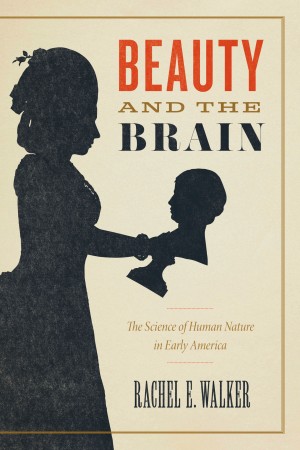 Between the 1770s and 1860s, people around the world relied on physiognomy and phrenology to assess human worth. These once popular but now discredited disciplines were based on a deceptively simple premise: that facial features or the shape of the skull could reveal a person’s intelligence, character, and personality. In the United States, these were culturally ubiquitous sciences that elite thinkers and ordinary people alike used to understand human nature.
Between the 1770s and 1860s, people around the world relied on physiognomy and phrenology to assess human worth. These once popular but now discredited disciplines were based on a deceptively simple premise: that facial features or the shape of the skull could reveal a person’s intelligence, character, and personality. In the United States, these were culturally ubiquitous sciences that elite thinkers and ordinary people alike used to understand human nature.
While the modern world dismisses phrenology and physiognomy as silly and discredited disciplines, Beauty and the Brain shows why they should be taken seriously: they were the intellectual tools a diverse group of Americans used to debate issues of race, gender, and social justice. . While leading intellectuals and political thinkers invoked these sciences to justify hierarchy, marginalized people and progressive activists used them for their own political goals, creatively interpreting human minds and bodies while fighting for racial justice and gender equality. Ultimately, however, physiognomy and phrenology were as dangerous as they were popular. In addition to validating the idea that external beauty was a sign of internal value, these disciplines often attracted the very people who were harmed by their damaging doctrines. By taking physiognomy and phrenology seriously, Beauty and the Brain recaptures a vibrant, if largely forgotten, cultural and intellectual universe that shows how popular science shaped some of the greatest political debates of America’s past.
 Rachel E. Walker is an assistant professor at the University of Hartford. She earned her Ph.D. in history from the University of Maryland. Her fellowship has been supported by numerous archives and institutions, including the Smithsonian Museum’s National Portrait Gallery, the McNeil Center for Early American Studies, and the American Society of Antiquaries. She worked on Beauty and the Brain while a member of the Library of Washington’s class of 2020-21 Research Fellows.
Rachel E. Walker is an assistant professor at the University of Hartford. She earned her Ph.D. in history from the University of Maryland. Her fellowship has been supported by numerous archives and institutions, including the Smithsonian Museum’s National Portrait Gallery, the McNeil Center for Early American Studies, and the American Society of Antiquaries. She worked on Beauty and the Brain while a member of the Library of Washington’s class of 2020-21 Research Fellows.
Source: news.google.com